A War Photographers Gear Arsenal: 5 Best Cameras for Photojournalism
Hire film gear from local filmmakers.

Hire film gear from local filmmakers.
If you're a photojournalist or a war photographer, you're aware of the conditions in a combat zone.
With harsh conditions comes large requirements in your equipment, and your camera isn't any different. You do not want your camera to break during your visit, because there's a long way to the nearest camera shop.
That's why we've listed the 5 best cameras for war photography, as well as the requirement a good war photography camera should fulfill.
If you want to learn about combat photography in general, you can read our article on war photography here.
5 cameras photojournalists use
1. Nikon D5
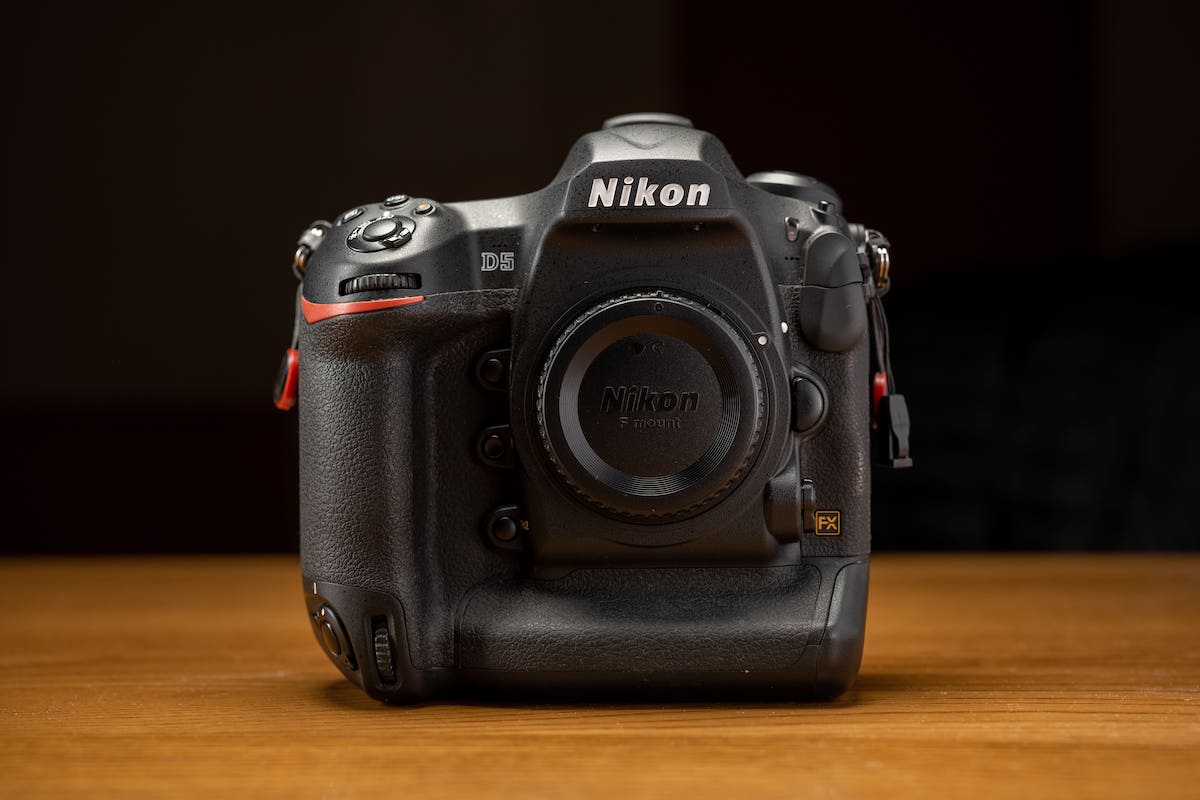
- 20.8-Megapixel CMOS Sensor
- Nikon F Lens Mount
- ISO 100-102,400 (Expandable to Hi-5 ISO 3,280,000)
- Up to 14 fps of Continuous Shooting
- UHD 4K Video at up to 30p
Key features for war photography:
- Great battery life
- Stunning image quality
- Weather sealed body
- Wireless lighting control
- Durable
War photographers who have used it:
- Nick Ut
- Alex Kühni
2. Canon 1D X II
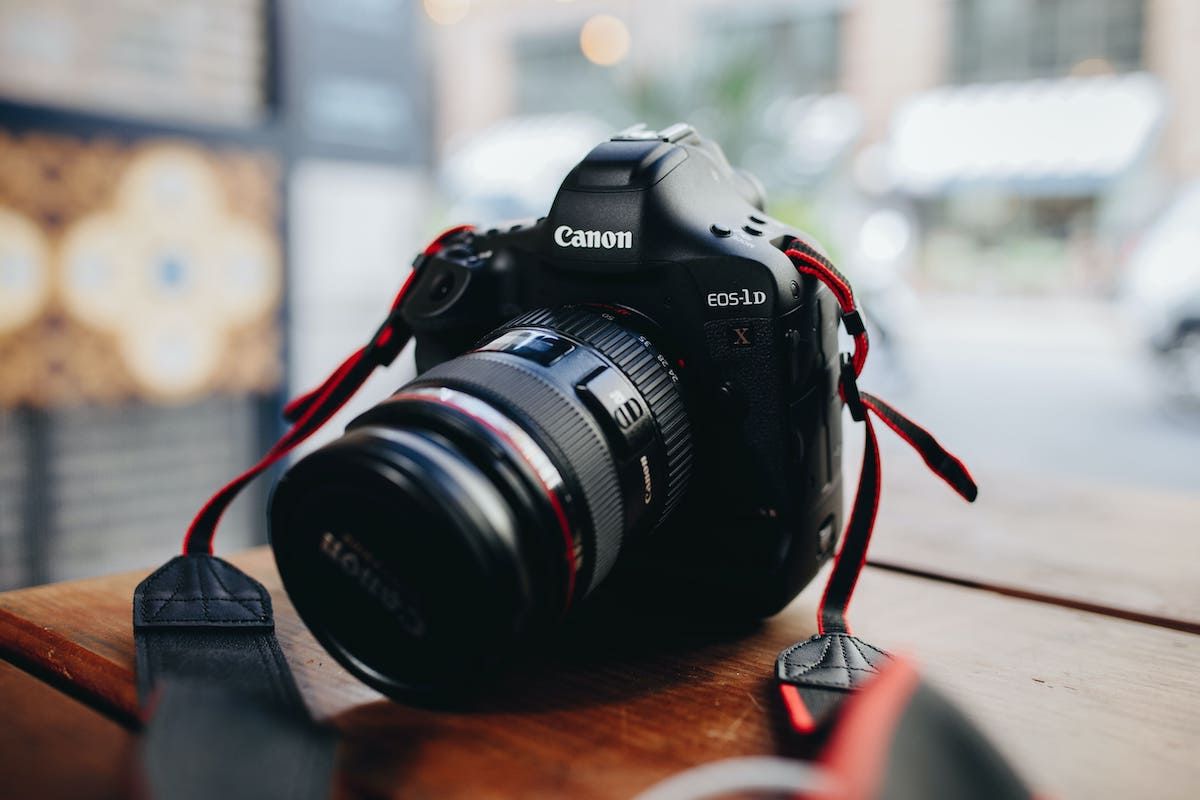
- 20.2-Megapixel CMOS Sensor
- Canon EF Lens Mount
- ISO 100-51,200 (Expandable to Hi-3 ISO 409,600)
- Up to 14 fps of Continuous Shooting
- UHD 4K Video at up to 30p
Key features for war photography:
- Stunning image quality
- Weather sealed body
- Fast autofocus
- Good performance in low light
- Durable build
War photographers who have used it:
- Magnus Wennman
3. Nikon D810
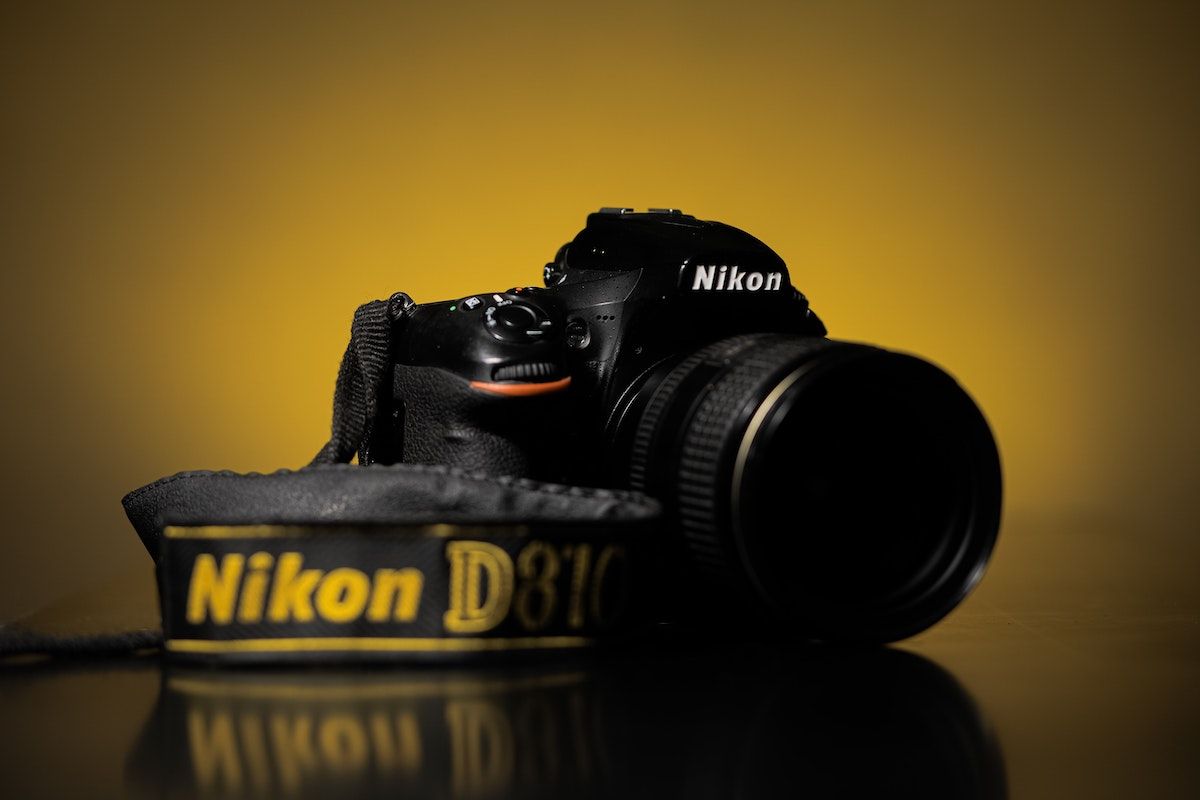
- 36,3-Megapixel CMOS Sensor
- Nikon F Lens Mount
- ISO 64-12.800 (Expandable to ISO 51200)
- Up to 7 fps of Continuous Shooting
- Full HD Video at up to 60p
Key features for war photography:
- Low image noise
- Fast autofocus
- Good battery life
- Weather sealed body
- Good image quality
- Durable
War photographers who have used it:
- Andrew Quilty
- Francesco Zizola
4. Canon EOS 5D Mark III
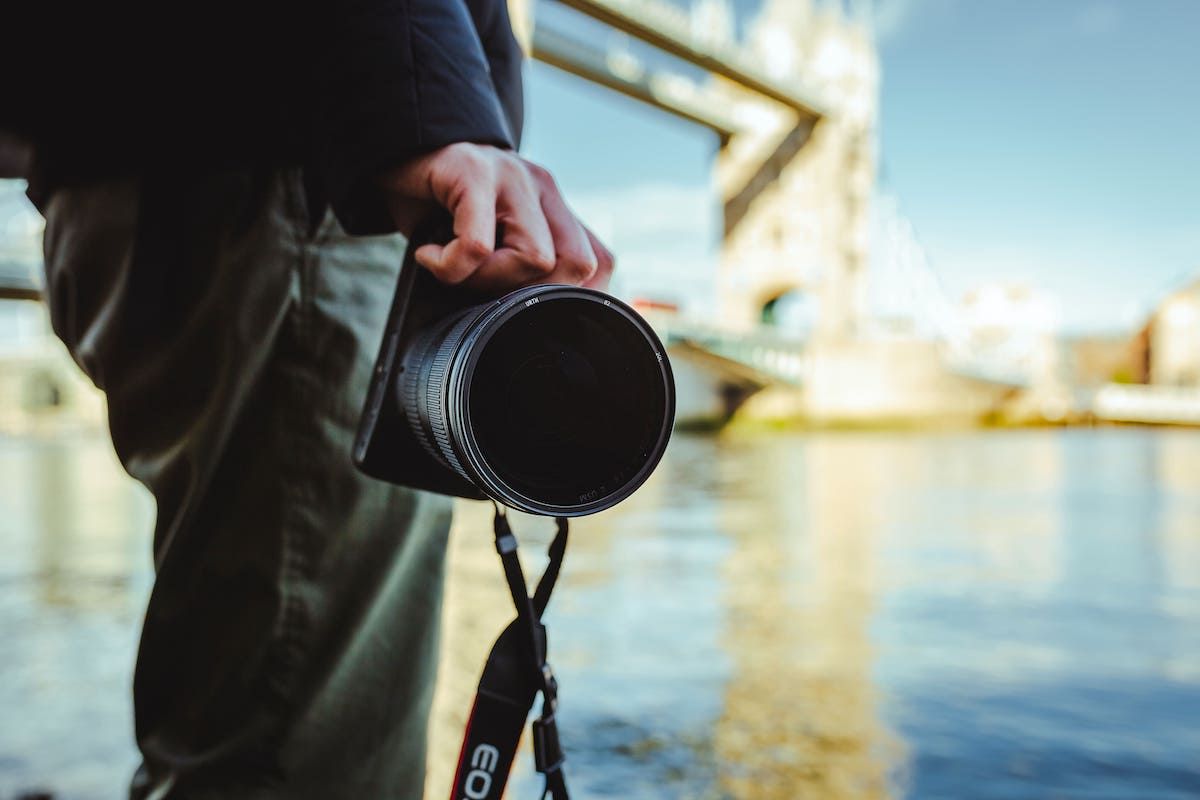
- 23.4-Megapixel CMOS Sensor
- Canon EF Lens Mount
- ISO 100-25,600 (Expandable to ISO 102,400)
- Up to 6 fps of Continuous Shooting
- Full HD Video at up to 60p
Key features for war photography:
- Good battery life
- Great image quality
- Weather sealed body
- Great build quality
- Responsive
War photographers who have used it:
- Magnus Wennman
- Ivor Prickett
5. Nikon D800e
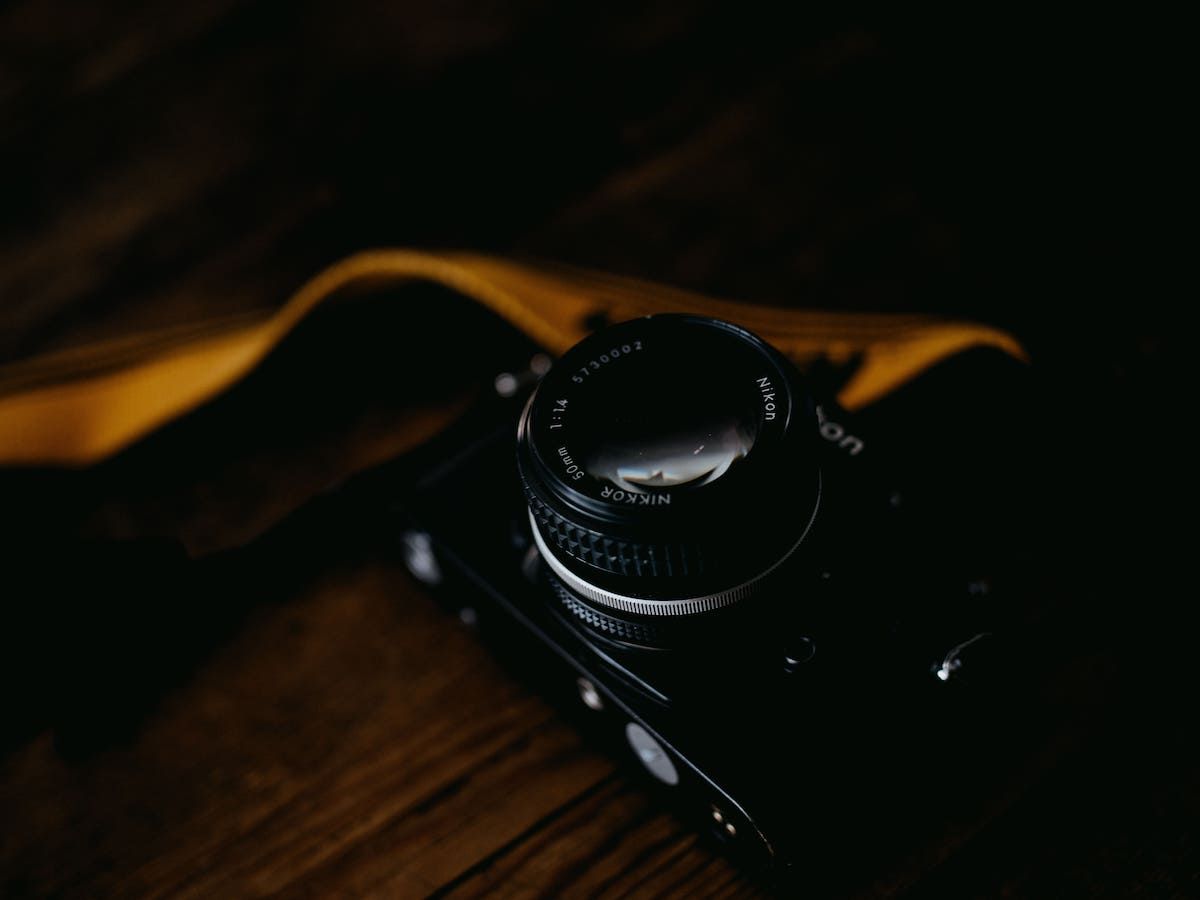
- 36.3-Megapixel CMOS Sensor
- Nikon F Lens Mount
- ISO 100-6,400 (Expandable to ISO 25,600)
- Up to 4 fps of Continuous Shooting
- Full HD Video at up to 30p
Key features for war photography:
- Shockproof
- Good ergonomics
- Weather sealed body
- Auto ISO
- Solid Build
War photographers who have used it:
- Andrea Bruce
- Marco Vernaschi
- Alfons Rodríguez
5 Things a war photography camera should do
When you go to a conflict zone to shoot pictures, you want the right gear in hand. And one of the most vital pieces of equipment is your camera body.
We will go through five traits a camera should have to work for war photography.
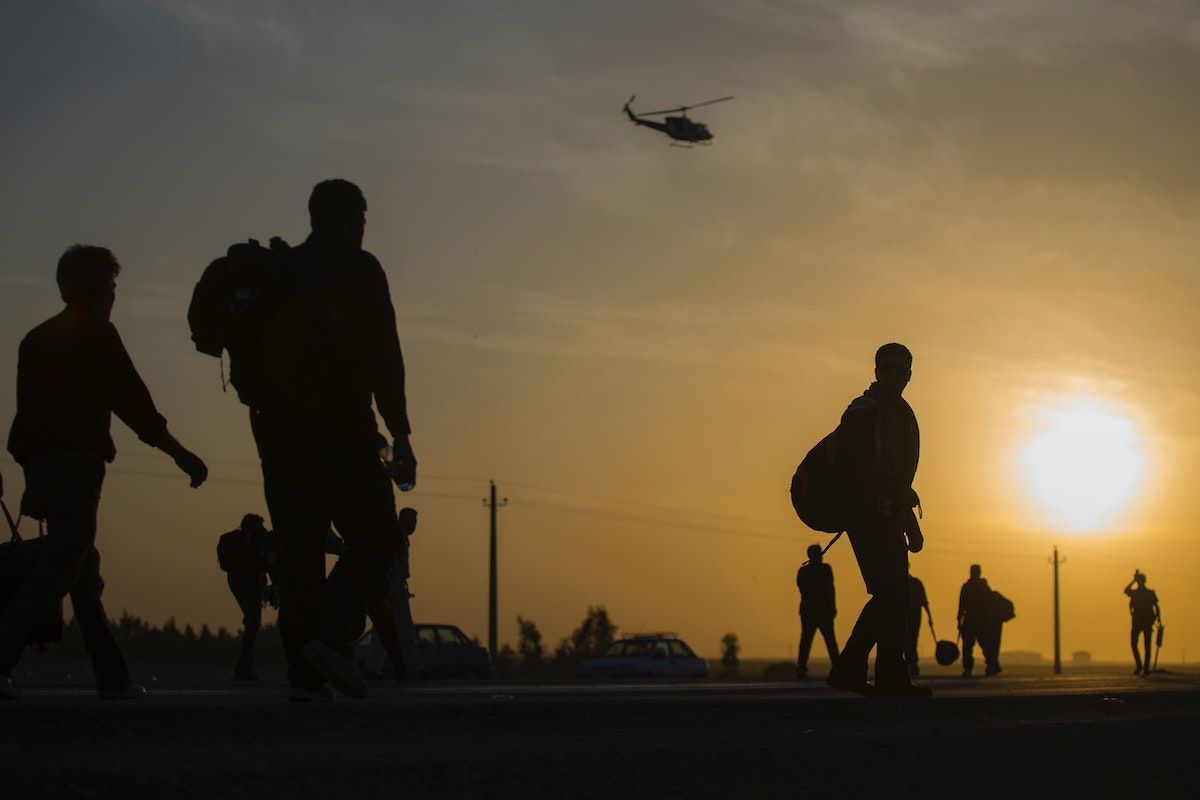
1. Shoot pictures in high quality
The first one may seem simple, but you want to be able to shoot pictures in high quality. When documenting a war zone as a combat photographer, you want to capture as much as possible.
You also might have to take pictures further away, and if you have bad image quality, the pictures could be useless.
So remember that whatever camera you go with, you should aim to get one that takes high-quality images.
You should also make sure that the camera can take photos in low-light situations because you might end up in a situation where using the flash isn't possible.
2. Be lightweight
You have to remember that whether you're in 100℉ in a jungle somewhere or 120℉ in a desert, there's one thing you always have to have with you, and that is your camera.
Regardless of what equipment you bring, you need to carry your camera at all times, and that's why you should make sure it doesn't weigh a ton.
A lightweight camera is easy to transport around, and it also makes it easier to hold still whenever you're taking pictures.
When you're in a combat zone, some days are going to be long and hard. And you want to be able to take great pictures for as long as possible.
Lightweight cameras also allow you to pack more gear that would otherwise be too heavy to carry.
3. Record in HD
Sometimes you have to double as a videographer if something happens that requires video footage. That's why it's a good idea to have a camera that also captures video footage.
Photography is sufficient for many situations, and sometimes it's even the superior choice. But occasionally, a video just works better.
Think if you're witnessing a bombing, pictures can be good, but filming the bombings with sounds can produce a much better product.
4. Fast autofocus and shutter speed capabilities
Autofocus is a process where your camera automatically focuses on your subject. It allows it to track movement and predict motion in real-time.
Having fast autofocus in a camera is necessary when working in a conflict zone, where things can go from 0-100 real quick. With fast autofocus, you can quickly adapt to what you are shooting and follow your subjects, whether they're static or moving.
Most of the time, you don't have time to stand around and mess with your focus because your window of opportunity is very narrow.
Another important trait in your camera is fast shutter speed capabilities. Shutter speed refers to the light exposure time of the digital sensor on your camera.
While slow shutter speed is great for portraits because of the bokeh effect, fast shutter speed is typically used in sports, wildlife, and war photography.
Fast shutter speed is used to capture moving subjects clearly and capture clear pictures in general. It is the preferred speed for most war photographers, except those taking portraits of the victims.
With the pace you have to work in as a combat photographer, having a fast shutter speed or the capability is the best way to go.
5. Good build quality
Lastly, you want your camera to be of good built quality. This doesn't necessarily interfere with the idea of a lightweight camera, depending on the material you use. And regardless, it doesn't matter how much your camera weighs if it's broken.
Imagine traveling 12 hours to get to 120°F dry climate, and no way to get home for at least two weeks, and you drop and break your camera on your first day. There's a long way to the nearest repairman, that's for sure!
That's why you want a camera that's built sturdy and can take a beating. You want a camera that can take a few hits and scratches and still work.
You also want to make sure that your camera is weather sealed. If it rains, is freezing, or hot as hell, you want to be able to use your camera.
So always make sure that the camera and lenses you carry are weather-sealed or have equipment that can help weatherproof it.
Meet a war photographer
I hope this article helped you pick your next camera.
If you want to know more about photography in general, you can check out our article on photography here.
You can also check out our masterclass with war photographer Mads Nissen to learn everything you need about the subject.
What cameras did WW2 photographers use?
In WW2, they used cameras like the F24, Super Ikonta 530/16, Williamson G45, Kodak Medalist, or Zeiss Ikon Contax II.
What cameras do Nat Geo photographers use?
It differs from photographer to photographer, but they use similar cameras to war photographers. Nikon D800E, Nikon D4, Canon 5D Mark III, Sony Alpha A99, Canon EOS-1D X.
Rent cameras from local creators.
Save up to 40%.
Global Coverage included.
https://images.wedio.com/images/listing_images/images/1945013/thumb/5d-Mark-III.jpg
https://www.wedio.com/en/cameras
https://images.wedio.com/images/listing_images/images/1944222/thumb/5d-Mark-III--24-70.jpg
https://www.wedio.com/en/cameras
https://images.wedio.com/images/listing_images/images/1936017/big/rent-sony-alpha-a7s-iii-on-wedio.jpg
https://www.wedio.com/en/cameras
https://images.wedio.com/images/listing_images/images/1926125/thumb/dsc05035.jpg
https://www.wedio.com/en/cameras






















